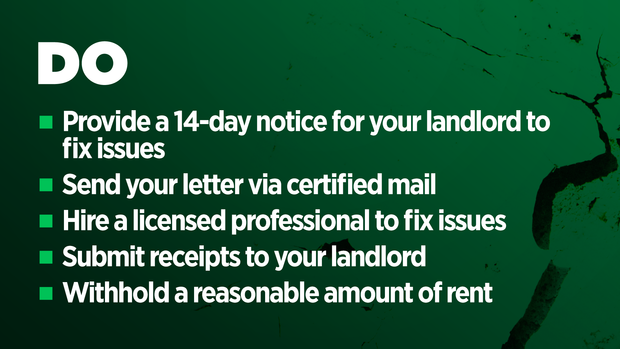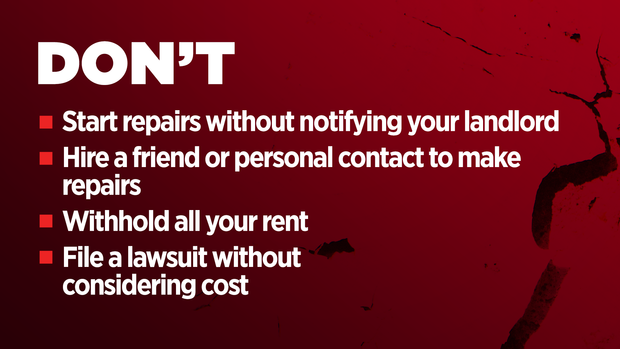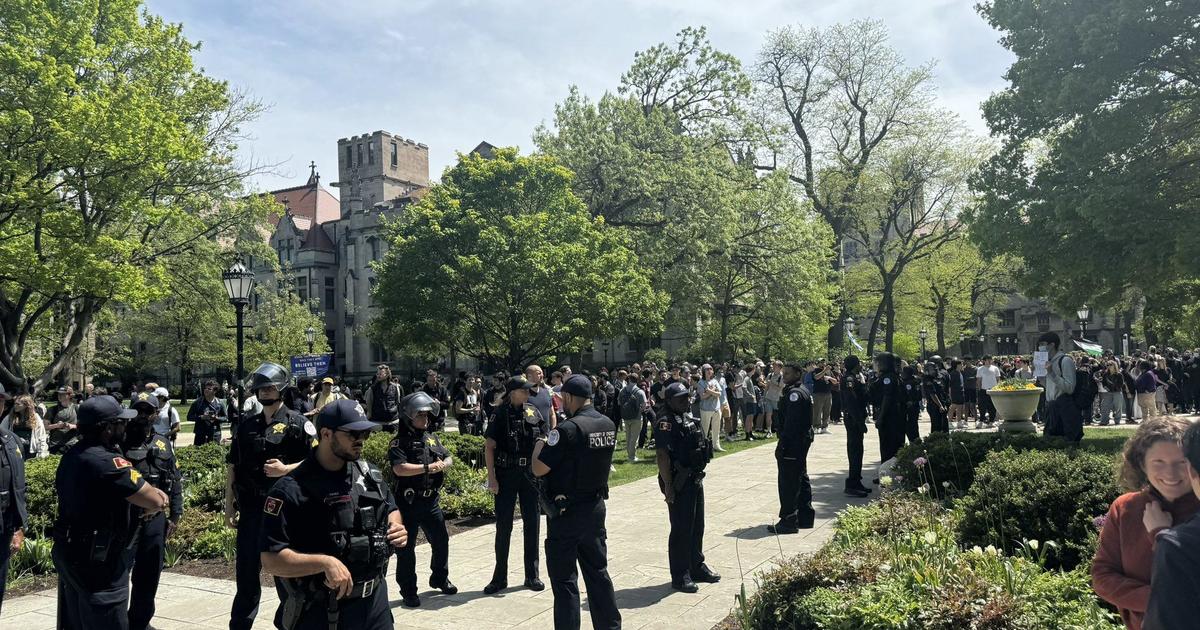What To Do If You Are Stuck In A Bad Apartment
By Paige Tortorelli
Whether it is the pitter patter of rodent feet against hardwood floors or mold wedged between bathroom tiles, tenants expect their landlords to fix such problems.
But throughout Illinois, some landlords fail to maintain their properties, which severely impacts the people living in these poor conditions.
In Chicago alone, there have been over 18,000 property complaints made to 311, a non-emergency call service, since December 2018 – and even more complaints fill the voicemails of suburban municipalities.
So what recourse do tenants have when their landlords are unresponsive?
For Chicago renters, the answer is clearer-cut. The Residential Landlord-Tenant Ordinance (RLTO) allows tenants to withhold portions of their rent if they pay to fix issues their landlord fails to address.
Alisa Levin, a Chicago-based real estate attorney, warned that the RLTO is a "very specific procedure" and tenants tend to skip over its crucial steps. Under this ordinance, tenants must first provide their landlord with a letter saying that repairs should be made within 14 days of receiving the notice.
"This is a vital step that is hardly ever followed," Levin said.
Based on Illinois law, it is best to send this letter through certified mail because it allows the tenant to know exactly when their landlord receives it.
If no repairs begin after the 14-day period, the RLTO allows Chicago tenants to hire a licensed and insured professional to complete the work.
Tenants must send their landlord a copy of the bill and can then withhold $500 or half of their rent – whichever is less – to make repairs.
Levin warned that a tenant should never withhold the full amount of rent because this violates the lease agreement and can put the tenant in legal jeopardy.
Outside of Chicago, tenant-landlord disputes become slightly more complicated.
In most suburbs, no official ordinance permitting tenants to withhold rent exists.
Suburban tenants are, however, entitled to repairs through municipal codes. Levin said suburbs have municipal codes that require them to maintain their properties, so tenants should contact their local authorities if their landlord does not provide a safe or sanitary unit.
Furthermore, under the Illinois Retaliatory Eviction Act, tenants cannot be evicted from their apartments if they report housing or health code violations to a government agency like 311 or the Better Business Bureau.
Landlords also cannot force evictions by turning off essentials like water or heat – a court has to order an eviction, and a tenant should notify authorities if their landlord acts illegally.
Such legal processes can appear convoluted and daunting to many.
As a result, the Lawyers' Committee for Better Housing, Illinois Legal Aid Online and the Lawyers Trust Fund of Illinois created Rentervention, a free service that helps tenants navigate some of these processes. Tenants can visit the website or text 866-773-6873 to chat with a bot that guides them through housing laws.
This service allows more tenants to understand and exercise their rights without involving an attorney or seeking pro-bono legal aid.
"We're trying to get more access to legal information pre-evictions," Mark Swartz, the executive director for Lawyers' Committee for Better Housing, said.
While the assistance this bot provides only applies to Chicago renters, it also refers people outside of the city to appropriate resources.
If disputes cannot be resolved through these procedures, tenants can file a lawsuit for breach of contract, but Levin said this may not be the best option.
"It's not wise economically to start lawsuits because you're irritated," she said.
Levin said tenants have a simpler option: to move out.
"No one is holding you there," Levin said.
Tenants can terminate their lease agreements when problems persist as long as they provide their landlord with a 14-day notice. The tenant then has 30 days to move out – otherwise their lease will remain in effect.
In most situations, if a landlord is not being responsive to a tenant's complaints, Levin said, moving out tends to be the most logical and economical option.
"Do you want to be right or do you want to be happy?" Levin said.





